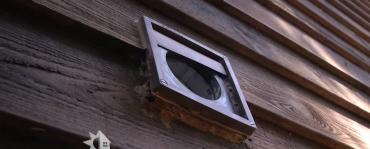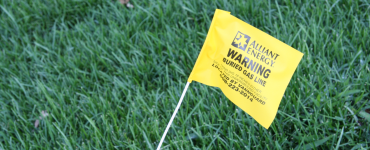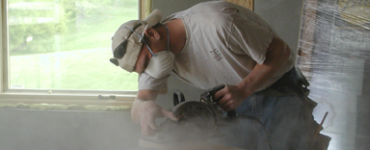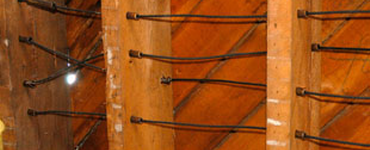Flood safety
Walking through a wet or flooded basement can be dangerous. To be safe, you should always assume that basement flood water is energized.
If your home floods, follow the safety precautions below.
Before a flood
- Unplug electric appliances if they are expected to be under water.
- Individually shut off the valves to gas appliances if they are expected to be under water.
Stay safe
- Never walk through a flooded home or building until gas and electric service are disconnected.
- Standing water can snuff out pilot lights on hot water heaters and furnaces. If this occurs, natural gas may collect in your home, creating the risk of an explosion.
- Even a small amount of water on the floor of your basement can put you at risk for electrocution. While electricity is often needed to run the sump pumps and wet-vacs that help remove water from the basement, the risk of electrical shock is too high.
- Safety experts suggest using a generator to power your sump pump or wet/dry vacuum instead. Generators also come with safety concerns, so learn more about generator safety before operating one. Never run extension cords through water.
- When you are ready to reconnect your service, call your power company. Be sure to have a certified electrician inspect your system for damage before calling to be reconnected. Have your furnace and water heater inspected by a professional.
- NEVER handle electric appliances or any other electric equipment, such as a circuit breaker, with wet hands or while standing on a wet surface. Water and electricity can be a deadly combination.
- Avoid walking in flooded backyards if water is touching utility equipment like ground-mounted transformers.
More from this category
Gas appliance safety
Keep these safety guidelines in mind when using gas-consuming products such as stoves, clothes dryers, water heaters and furnaces.
Cleaning dryer vents
Drying clothes takes a lot of energy. Keeping your dryer vent clean makes your appliance more energy efficient.
Carbon monoxide - the invisible enemy
Find out what causes deadly carbon monoxide poisoning - and how to prevent and detect it.
Staying safe around buried gas pipelines
If you have buried natural gas lines on your property, make sure you know how to locate and maintain them.
Take care with power tools
Taking a few minutes to check power tools before and after using will keep them in good working order and will keep you safe.
Portable generators & space heaters
Wiring and grounding in older homes
The wiring inside most older houses wasn’t designed to handle the electrical needs we have today.









